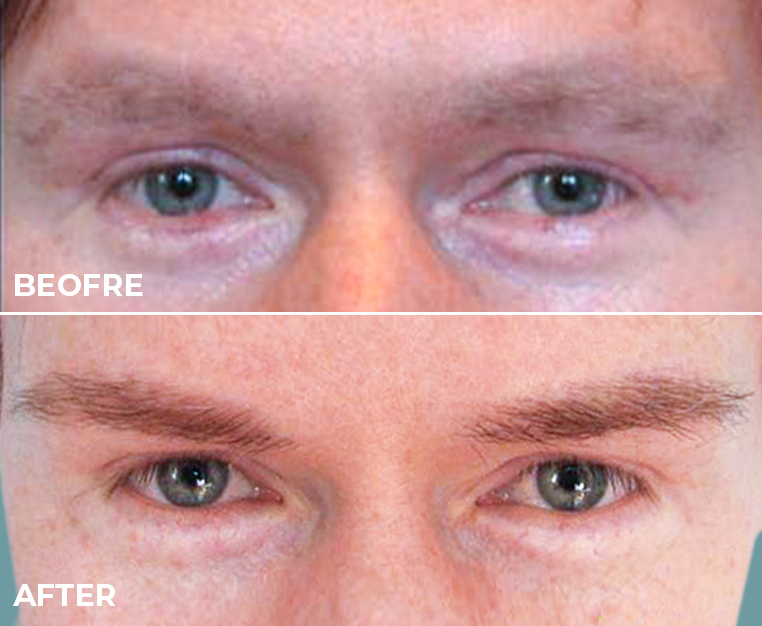It’s not uncommon for people to suffer hair loss from genetics, hormonal change, heat damage, or other causes. Each cause is treated with specialised medications. However, the internet never fails to surprise us, because another homemade treatment has become popular these days. This is rosemary tea, and we’ll talk about it today.
“Does rosemary tea really boost hair growth?” Before and after videos show beautifully restored hairlines, so we’re taking this question seriously, reviewing what experts have to say about the effectiveness of rosemary tea. It’s important to clarify that the rosemary tea treatment we’re talking about does not come packed into a bottle with other chemical products.
Instead, we’re talking about a completely natural remedy that contains rosemary leaves that can be bought at any grocery store and steeped in hot water for a few hours – it’s tea, pure and simple. This magical liquid is then strained and poured into a handy spray bottle from which you can apply the tea to your scalp a few times a week. Sounds too good to be true? We’ve decided to probe into what experts in this area think about it.
Chemists and Dermatologists Answer
Mona Gohara, M.D., a board-certified dermatologist in Connecticut, was asked whether rosemary tea could impact the hair growth process for good or bad, but she didn’t have a clear answer about this. She stated that while there’s no proof that applying rosemary tea on your scalp grows hair faster, the liquid could help the process.
She drew parallels with a product made of the rosemary herb, which is rosemary oil. “Rosemary oil eliminates dirt, strengthens follicles, provides moisture to the scalp, and minimises breakage”, she said. According to studies, the oil contains the same main ingredients as rosemary tea.
Ron Robinson, a cosmetic chemist, cited the same study when asked about the effect of rosemary on hair growth. The research monitored the effect of rosemary oil against Rogaine, a well-known hair restoration product containing around 2% minoxidil, on over 100 participants. The research lasted six months and resulted in a surprising conclusion.
The group using rosemary oil experienced the same amount of hair growth as the group using Rogaine. “Although this data sounds promising, this has not been reproduced.”, Gohara notes. For those seeking a clearer understanding of the rosemary oil effects, she draws a comprehensible comparison.
The oil resembles crutches: they assist you in your healing process but not directly. The oil helps create a better environment for hair growth.
“It works as an antioxidant, antimicrobial, anti-inflammatory, and most importantly, microcirculation enhancer.”
Ginger King, another cosmetic chemist, was asked the same question and replied by mentioning the very same benefits. She went on to explain that the oil’s antimicrobial properties positively affect scalp health and decrease dandruff.
Rosemary oil’s anti-inflammatory ingredients also reduce irritations in the scalp area. Additionally, King mentions that there are several studies attesting to the positive impact of this oil on hair growth. However, rosemary oil requires more time compared to minoxidil to show results.
So far, experts have pointed to proof of the positive effects of rosemary oil in hair growth, but what about rosemary tea? We mentioned above that rosemary oil and tea contain the same key elements, something which suggests that their effect could be similar as well. Robinson suspects that this is possible, but more in-depth research is needed.
Is Rosemary Tea a Hair Growth Booster?
King has her own doubts. She claims that oil-soluble ingredients are much more effective than water-soluble ones. There’s also the problem that everyone prepares their tea differently; people buy different types of rosemary tea and use different quantities of water to make it. That makes predictions about its effectiveness difficult.
As far as research goes, therefore, experts confidently vouch for the positive effect of rosemary oil as an aid to hair growth, but the research isn’t there to prove the same effects for rosemary tea. Those in pursuit of hair growth will see better results if they purchase a few vials of rosemary oil-related products rather than by applying rosemary tea.
Robinson and Gohara advise those considering rosemary oils to consult with a dermatologist first. Anyone suffering from psoriasis, eczema, or other skin conditions could find this type of oil irritating.
King doesn’t recommend using rosemary oil during pregnancy due to microcirculation enhancement. A small percentage of people may be allergic to rosemary oil, but a simple patch test can determine if you’re one of them.
Conclusion
In summary, rosemary tea contains the same ingredients as rosemary oil, but it doesn’t have the same proven effectiveness when it comes to stimulating hair growth.
If you have questions about anything in this article or on hair restoration generally, our experts are always ready to help. Vinci Hair Clinic is currently offering a free consultation to all our new clients. Get in touch and book your appointment today!


